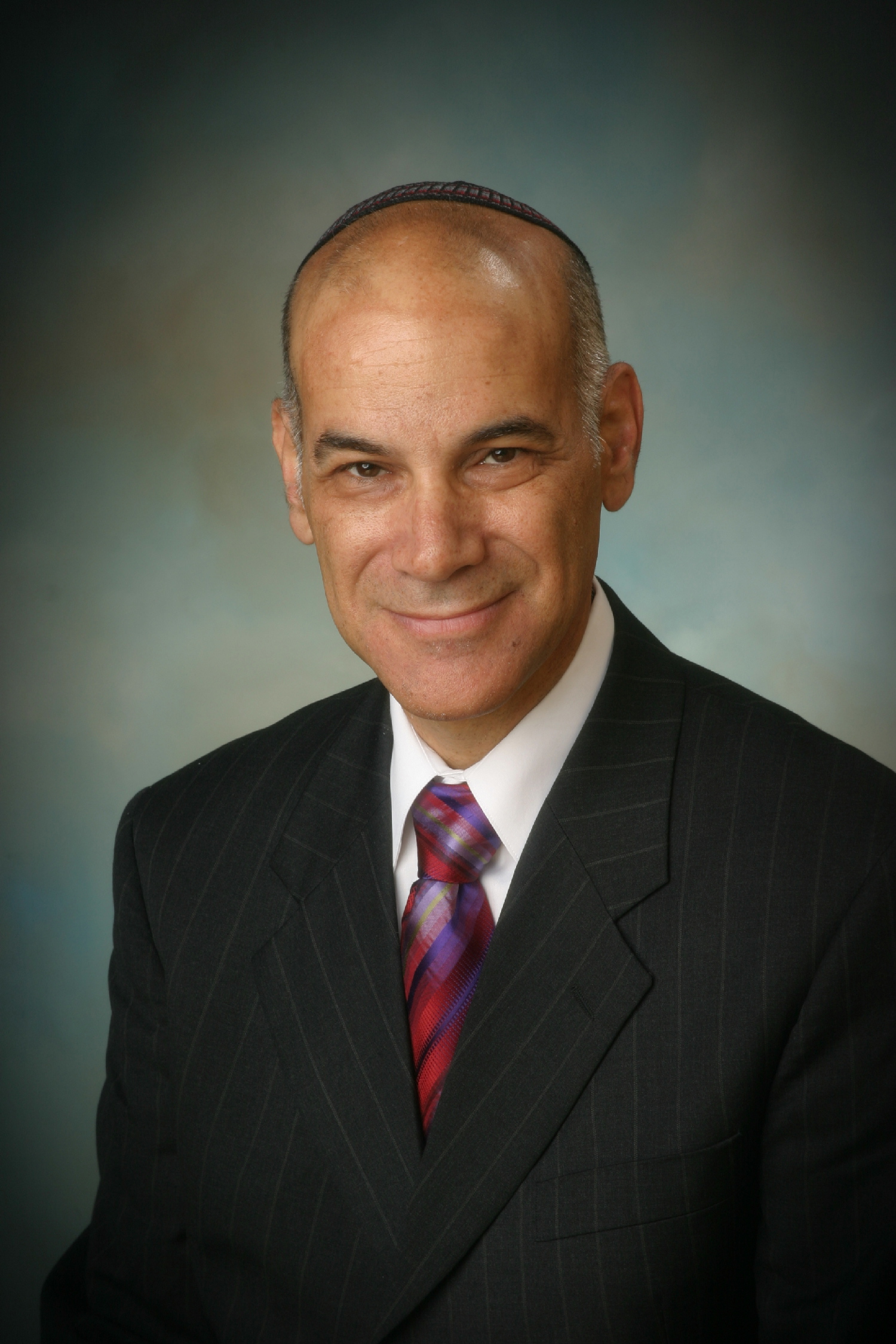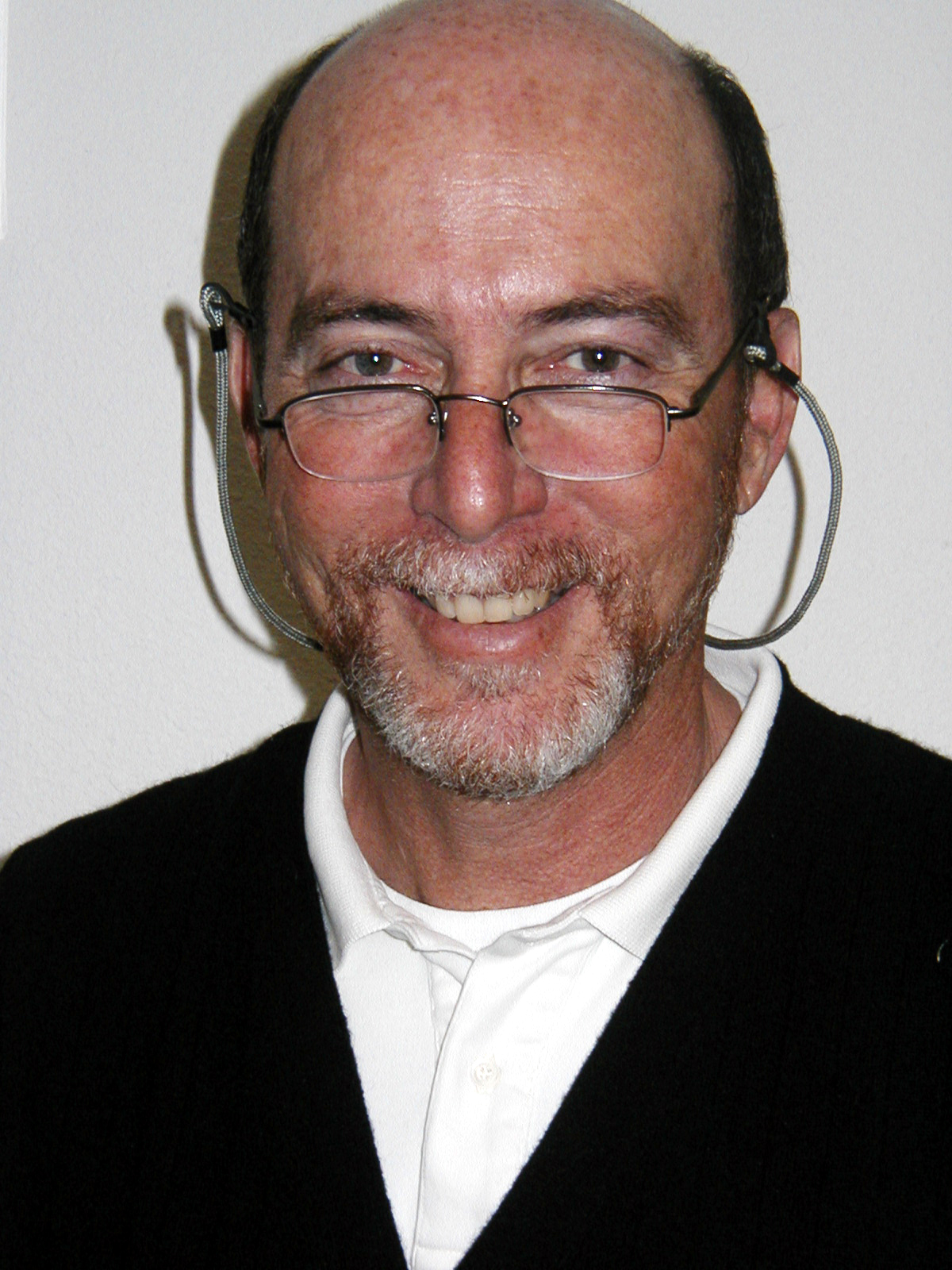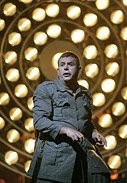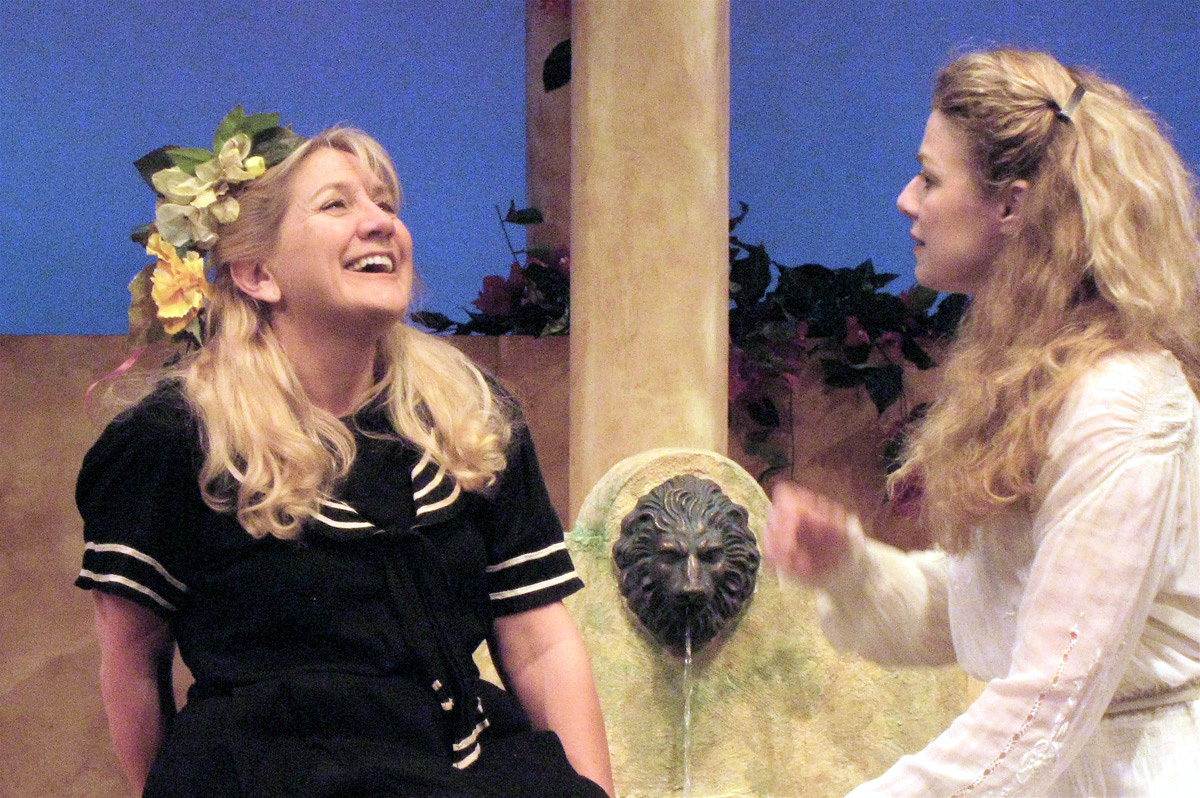_________________________________________________________________
 Torah
on One Foot Torah
on One Foot
By
Rabbi Leonard Rosenthal
Tifereth Israel Synagogue, San Diego
_____________________________Parasha Tetzaveh-Metzorah
When the news is Lashon Harah
The Chafetz Chaim, the
great 19th century Jewish moralist, was fond
of quoting the Rabbinic dictum: “Life and death is determined by one’s
speech.” The Chafetz Chaim
was always careful about the words he
spoke and was particularly careful in observing the
mitzvah which
prohibits lashon harah,
gossip and slander. According the rabbis, the
illness of tzarat, skin
disease, discussed in this week’s
parasha is divine punishment for the sin of
lashon harah.
There is no such thing as “idle gossip.” Words are terribly powerful
weapons that can do a lot of damage, even if they are true.
I
would not like to have been in the shoes of NBC executives this
week when they received a package of written material and video
clips from Virginia Tech mass murderer, Cho Seung-Hui. While the
deluded rants and accusations of this mentally ill young man were
clearly newsworthy, the network had to decide whether the public’s
“right to know” overshadowed providing Seung-Hui a platform to
posthumously validate his heinous acts and cause further pain to the
families of the victims.
It is the same type of decision all of us make daily on a smaller scale
when we consider whether the words we speak and write will be
ultimately helpful or harmful. When should we speak and when
should we remain silent? Do we tell the person who asks us “how
do I look” the truth, or a little white lie? Do we voice an opinion
that runs counter to the pack, or do we remain silent lest we go against
the grain and become the object of derision and abuse? Do we tell our
relatives and friends what we truly think about some of their negative
qualities in the hopes of improving them, or do we remain silent for the
sake of the relationship? These are all difficult decisions without
simple answers.
Are this country and the families of Seung-Hui’s victims better or
worse for hearing his words? My gut feeling is “no.” Listening to his
delusions I felt more a voyeur than an informed citizen. His words
did not explain anything or provide any comfort or answers. They
just confirmed what we already know: Seung-Hui was mentally ill
and despite the red flags, the mental health and legal
systems, coupled
with the limits imposed by confidentiality laws, could not stop him.
Even in a free and open society the press has to carefully evaluate
what it publishes and decide whether more good than harm comes
from its stories and interviews.
All of us need to make the same decisions when we choose our own words.
What the rabbis said long ago is also true today: the words
we speak can either harm or heal.
Shabbat Shalom,
(back to top)
Looking for adult Jewish education in
San Diego? AJE will help you find it
"I want to learn to speak Hebrew---really speak it –not
just learn words!”
“I’m
interested in taking courses in Jewish history or Israeli politics,
or maybe even learning Yiddish”
“What I really
enjoy, is going to cultural events—like the Jewish Film Festival, or
concerts or plays with Jewish content."
By Sandy Golden
SAN DIEGO, Ca —Besides by reading this
website, how can you
connect with Judaism?
One good way is to consult your recent copy of the Goldberg
Charitable Trust publication, Makor, which made its community
debut in January 2006, and has already made a significant difference in
increasing the numbers of adults participating in Jewish study.
The Hebrew word makor means
"source," and this publication put out
by the Agency for Jewish Education(AJE) truly is a complete up-to-date
source of what’s going on in San Diego, both educationally and
culturally.
Makor is described by Alan Rusonik, executive director of the AJE,
as the fulfillment of the AJE’s mission “to provide, promote and
facilitate quality educational resources for the continuity and enrichment
of Jewish life in San Diego.”
It provides a comprehensive listing of
all Jewish events and learning opportunities under one umbrella, for the
benefit of the entire
community. Listings provided by the Agency’s more than 25 partners
which include synagogues, temples, congregations, high schools, universities
and agencies, are presented by topic, location, and starting
dates, to meet the diverse needs, interests and convenience of San Diego’s
Jewish adults. Therefore, the reader has only to browse through this
newly-developed resource to find something meaningful for him/her to make
his/her own Jewish connection.
Whether you want to take a beginning
Hebrew class, an advanced Ulpan course, or prayer study, listen to a
scholar’s lecture on contemporary
issues in Israel, discuss ethical issues or the Jewish way of life, whether
you want to join a book group, sing, dance, or take a trip to Israel led by
Israeli scholars, there is bound to be something for you, so check out
Makor, and keep it handy. If you have misplaced your recently mailed
copy, clicking here will
take you right to its on-line index.
 The
Agency's Makor web pages are The
Agency's Makor web pages are
always kept current, and are
up-dated monthly by Noah Hadas,
AJE's director of Adult Education.
Hadas, who has been with the Agency
for the past six years, says that he has already personally seen Jewish
education flourish since the
inception of Makor. Before he began
his second career at the AJE, Hadas had lived in Israel for eight years,
where two
of his three sons had been born. His love for Jewish learning was reflected
in his studies at Hebrew Union College in Jerusalem, and the completion of a
M.A. degree in Judaic Studies in the States.
Noah Hadas
In addition to serving as a voice for
all of San Diego’s religious
institutions and agencies regarding Jewish education, the AJE also
supports Jewish education on many levels, through its own programs,
and major events. Some of those highlighted by Hadas included such ongoing
programs as:
*Staff development and instructional resources for teachers at
Jewish schools available at the AJE offices at 4858 Mercury Street, Suite
#100
*Rosh Chodesh, a program at the beginning of each month, for
teen-age girls
*The High School of Jewish Studies,
an evening program for
post bar/bat mitzvah students
Hadas, during an interview, also
mentioned various annual events:
*Limmud –A Community Day of Learning–held in January of each year.
*Florence Melton Adult Mini-School, a project of the Hebrew
Universityof Jerusalem, which offers classroom courses in San
Diego, as well as an11-day Melton Israel Seminar, "Exploration of
Israel and Its Texts" to small groups of participants.
(back to top)
.Advertisement:.J

JFS sets schedule of events
for Jewish Healing Center
SAN DIEGO (Publicity Release)—The Jewish Healing
Center, a program
of Jewish Family Service of San Diego (JFS), provides resources for the
spiritual well-being of the Jewish community. It offers healing of the
spirit, mind and body through psychological and spiritual counseling,
resources and advocacy. Upcoming programs and events include the
following:
The Bereavement Support Group
meets on alternate Wednesdays
from 10:00-11:00am free of charge at the JFS Turk Family Center,
8804 Balboa Ave., San Diego, 92123. Upcoming meetings will be on
May 2, 16, and 30 of 2007. The group offers friendship and support for
people who have recently experienced change or loss in their lives, such
as the loss of mobility, the death of a loved one, or changes in living
circumstances.
Through the Bikkur Holim Friendly
Visitor Program volunteers visit
isolated Jewish seniors and senior living facilities across San Diego.
They fill the hearts of seniors with compassion, happiness and spiritual
growth and develop close personal relationships. To learn how to
volunteer and receive JFS video training, attend the free Volunteer
Recognition and Training Meeting on Tuesday, May 8, from
1:30-3:30pm at the JFS Turk Family Center, 8804 Balboa Ave., San
Diego, 92123.
Dharma Shalom: Healing Body, Mind,
and Spirit with Mindfulness Training will be on
Sunday, May 20, at Questhaven Retreat,
(20560 Questhaven Rd., Escondido, 92029), from 2:00-6:00pm.
The retreat will discuss ways to live a balanced and sacred life.
It will explore the healing power and practice of mindfulness, or
non-judgmental awareness. Research has shown that programs based on
mindfulness have been very successful in reducing symptoms of
chronic pain, anxiety, depression and fibromyalgia and can aid in
stress management. This event is free of charge but space is limited
so register in advance.
On Sunday, June 3, from 10:00am-4:00pm
A Day of Quiet,
Healing and Renewal, in honor of Jewish Healing Month, will be
held in the gardens of the Center for Creative Renewal. A day of
quiet gives the opportunity to escape from busy lives and refresh the
spirit. The purpose of this day is to provide time, space, and
encouragement to connect with ones “hidden wholeness.” The day
will be spent meditating, praying, eating, walking and reading poetry,
all in silence. Registration is $25 until May 20 and $35 thereafter.
The Jewish Healing Center is located at
the Jewish Family Service
Turk Family Center. All Jewish Healing Center events require prior
registration. To register call (858) 637-3070 or learn more online at
www.jfssd.org.
(back to top)
The Jewish Grapevine

CRIME SURVIVORS—Kim Goldman,
sister of Los Angeles murder victim Ron Goldman, and other homicide
survivors will join San Diego District Attorney Bonnie Dumanis at a
candlelight tribute at 5:30 p.m.
on Monday, April 23, for crime survivors, at the San Diego Police Officer's
Association Hall, 8388 Vickers St. in the Kearny Mesa area of San Diego
MAZAL TOV TO—
Columnist Judy Lash Balint, a frequent contributor to this
website, who recently had her latest book published by Xulon Press.
Information about
Jerusalem
Diaries II: What's Really Happening
in Israel may be obtained by
clicking here.
... Shor Masori, who today
turned 6 years old. He is the grandson of jewishsightseeing.com editor
Donald H. Harrison.
MEMORIALIZED—The later Raphael Levens was memorialized today
by his brother and sister-in-law Jerry and Rachel Levens, thereby becoming
the 393rd honoree of the Louis Rose Society for the Preservation of Jewish
History.
(back to top)

Arts
in Review
by
Carol Davis
___________________
The choices at my playground
SAN DIEGO, Ca—I can’t
remember the last time I was physically on a seesaw, but I can tell you that
theatre is sometimes like being on one, or in a grand playground with many
toys from which to choose. As an example; one night I might be sitting and
enjoying Enchanting April at Lamb’s Players Theatre in Coronado, the
next night opera at the Civic Theatre listening to and watching Wozzeck,
followed by an afternoon outing in the North County to see Wit.
In some ways it’s like getting
your high and low fixes by springing to
the top and looking out over the entire area almost with your head in
the clouds, no sooner to be bounced back down to the bottom where everything
has a darker look. It’s checking the playground out from
both sides and appreciating the choices. Theatre has that many sides
and then some. San Diego theatre is a virtual playground when it comes
to variety.
So come join the rides with me.
Wozzeck
Alban Berg’s Wozzeck, the
long awaited, greatly anticipated ‘modern’
opera has come and will take a place in the annals of local opera
history after its last performance on the 22nd of this month. All the
hullabaloo, horrific looking opera posters and ads will come down.
Tony Award winning Artistic director emeritus Des McAnuff of the
La Jolla Playhouse, will have made his opera directorial debut—his
San Diego swan song so to speak—before heading off to the Stratford Festival
in Canada for his next assignment. Now i is up to those who
sat through Berg’s composition and watched the story unfold to give
an opinion on the performances of the artists, the overall look of the
production, and to sing its praises, or not.
Wozzeck,
a 90-minute opera is the fourth in this year's San Diego
Opera season and the first production of this piece to be presented
to local audiences. Based on Georg Büchner’s 1914 play, Woyzeck is
about a German soldier who killed his mistress, the mother of their
illegitimate son, after going mad with jealousy because of experiments
he’s subjected to by his superiors and the humiliation brought upon
him by both his mistress and his superiors. Unfortunately Büchner died
before he could finish it and Berg, an Austrian, who had seen the play
and wanted to compose an opera based on it had to wait until his
military service was over at the end of WWI. He began work on the
opera in 1914 and finished it in 1922.
 The
play examines just how far the government can go in torturing, humiliating
and haunting a person before that person cracks. Not being The
play examines just how far the government can go in torturing, humiliating
and haunting a person before that person cracks. Not being
of sound mind to begin with in the case of Wozzeck, it didn’t take much.
Given his station in life, he felt he had no options. Wozzeck, in a sense,
represents Everyman. He is on the lowest wrung of the totem pole of society.
Because of the way he is treated, he feels helpless and alone
with no one to defend and everyone watching him.
He agrees to be an experiment,
if you will, for the government in order to earn whatever monies his
‘doctors’ give him so he can feed
his mistress and child, while reaping the benefit of her company
as well. Someone of sound mind would have a difficult time
rationalizing this kind of experimentation on his body which had a
profound influence on his disturbed brain. However not being of
sound mind leaves the entire question of what an insanity plea for
murder would have looked like for Wozzeck, as a round table
discussion, had he had council.
In the opera, German bass Franz
Hawlata, who is making his
company debut, and who has sung this role more than 60 times, is a
formidable Wozzeck vocally. Nevertheless, his voice, his physical
presence and his mannerisms, while strong and his acting expressive,
never gave me a sense of urgency about his plight. He sings about ‘poor
folks like us’ and surely we can see the taunts of his superiors, some
slight changes in his posture but because he was always facing the
audience, his position, his singing style never seemed to change. In fact,
that was the missing link yours truly felt about this production, since he
was on the stage the entire 90, or so minutes.
While it was evident that he was
the object of the experiments by
the Doctor (American bass Dean Peterson); the haunting of the
Drum Major (American tenor Jay Hunter Morris); the infidelity of
Maria (American soprano Nina Warren) and the scrutiny of the Captain
(American tenor Chris Merritt) and the entire chorus who were
watching over his every move in every act, (there were three) and every
scene, (there are five in each act) I was not convinced. The subtlety
eluded me and I was waiting for a big aha to happen, and it didn’t
until his tragic death at his own hands.
Berg’s score is another story.
If you go with the intention of hearing anything soft, melodious and
memorable akin to Verdi, stop! It’s not
going to happen. The music definitely underscores the intensity of the
libretto, which Berg wrote. It is dissonant, atonal, loud, dramatic
(resident conductor Karen Keltner conducted beautifully) and not too
pleasing to the ear, if you are not inclined. In fact there were times
when the music was so loud that some of the voices could not be heard above
it.
Producers of Wozzeck are inured to such criticisms, of course.
In 1930,
the accomplished Jewish conductor Jascha Horenstein created such
excitement with the opera that Berg himself came to attend the
performances. Newspaper critics were not impressed. It is recounted on
the website www.classical.net that
one contemporary reviewer snorted: "Jascha Horenstein conducts....but does
he make music? Who other than
the composer would know it? This music is such that it wouldn't matter
if a handful of notes were missing".
There were other distractions as
well. Set designer, Robert Brill (a long
time and oft collaborator of McAnuff’s) designed a huge, 24-foot-high
steel and Plexiglass arena with a maze of stairs, doors, openings and
bleachers (somewhat like a Gestalt puzzle) and with a turnstile deck that
rotates in either direction that could heard off and on. The
overwhelming size of it on the Civic Theatre stage gave the opera
a larger look than it really is.
Stephen Terry’s lighting and
video designs are ingenious. Another
large piece of equipment in the shape of a U2 looking space ship
filled with lights suspended from the top of the arena seemed to be
following Wozzeck's every move. Somewhat like Big Brother. The
videos projected on a screen above the stage during scene and set
changes of Wozzeck in different poses are most impressive when
accompanied by the music. Especially riveting was the drowning
scene when Wozzeck lets the water flow over him.
Overall, S.D.O General Manager
Ian Campbell and Des McAnuff
are to be congratulated for their efforts in bringing together a
theatrical piece with a score many had never heard and will probably
not hear again for some time. I had expected something different and
for me the individual parts didn’t completely equal the whole, but we
can’t negate the entire endeavor as those in attendance on opening
night had a completely different take on it than I did. They were on
their collective feet, cheering and whistling at curtain call. So there
you go.
Wozzeck
will
continue through Sun. April 22nd, matinee. The Opera
may be reached via www.sdopera.com.
Wit
It’s not often that you know in
advance that the play you are about to
see is going to rock your socks off. Margaret Edson’s Wit, a memory
play that won a Pulitzer Prize for drama and won raves as the new kid
in town in 1999, is now in an excellent production at the North Coast
Repertory Theatre in Solana Beach. It stars Rosina Reynolds in stellar
performance as Professor Vivian Bearing.
As a teenager, I recall reading
John Donne's famous lines, and I could
not help recall them while watching Wit.
No man is an island, entire of itself; every man is a piece of
the continent, a part of the main. If a clod be washed away by the
sea, Europe is the less, as well as if a promontory were, as well as if
a manor of thy friend's or of thine own were: any man's death
diminishes me, because I am involved in mankind, and therefore never
send to know for whom the bells tolls; it tolls for thee.
Vivian Bearing, the central
character in Edson’s book, is in Stage Four Metastatic Ovarian Cancer. It
seems that Donne’s works have more than
a passing interest to writers and professors, especially Bearing herself,
who is a professor of metaphysical poetry. In particular, she lives for
the 17th century works of John Donne..
 Dressed
in nothing but hospital gown Dressed
in nothing but hospital gown
and ball cap covering her now- bald
head, and wheeling an intravenous pole, set on a bare stage with long green
curtains arranged to resemble shower curtains i.e. a hospital setting, (by
Marty Burnett) Dr. Bearing (Reynolds) addresses the audience.
She tells us about her condition, and wishes it were not so. “I would prefer
that a play be cast in the mystic-heroic pastoral mode; but the facts, most
notably Stage Four Metastic Cancer, conspire against that. The Faerie
Queen this is not. It is not my intention to give away the plot, but I
think
I die in the end”.
And so we begin the journey,
the story of her gallant effort to "keep up
our spirits’ in the face of impending death; her experimental drug
therapy treatment (there are eight of them and no one so far has been
able to sustain them at the full dose); her brilliant musings on Donne,
and her interactions with her students. Bearing has chosen to be
somewhat of a guinea pig for this new drug and tries throughout
to be brave and not falter.
As the narration goes on we also
meet up with her doctors, Harvey
Kelekian (John Herzog) and Jason Posner, MD
(Dennis Henry) whose
main goal as doctors is research. Of that there
is no doubt. They all know
it and act accordingly. Although they seem
the stereotypical, all-business and no sense of humor types, they do
convince. Nancy Burrows shines
as her nurse and Sandra Eagye proves
to be formidable as her colleague who is with her in the end.
But the spotlight really shines
on Reynolds who is simply astonishing
as Dr. Bearing. I never had to be convinced of Reynolds’ talents as a
seasoned actress, director and fine human being, but this performance
tops anything she has done. In fact this is a centerpiece for her. In ninety
short minutes she is, all at once, a brilliant, self-confident professor who
recites the pros and cons of Donne’s work with aplomb, style and wit, all
done under the deft direction of David Hay. In her treatment of her
students, she has the same self assured professionalism she claims to
revel in which comes over loud and strong. Her lectures, straight talk,
sense of humor and yes, wit are what grabs at you as the play goes from
present to past to present to well, until…
Gradually, there is a slight
fading of confidence, a nudge here and
there that all isn’t so fine, after all. The meds are taking a toll on her
and
she begins to falter, get smaller, weaker, less self-assured and more
dependent on others. All the while, Reynolds keeps the pace up,
the wise cracks coming, straight talk in a steady stream until she
literally fades into herself and becomes a shadow of her previous person.
It ain’t easy watching and everyone in the audience, I know, spilled a
collective tear as she slowly deteriorated, almost vanished in front of
us.
Jeanne Reith dressed everyone in
hospital gear and college looks
and Mia Bane Jacob’s lighting was exceptional to the end.
Wit
plays through May 13th. I highly recommend seeing it.
To contact the North County Rep, call (858) 481-1055 or visit
the web
site www.northcoastrep.org
Enchanted April
Make preparations, sow some
seeds, stay expectant, keep the vision
in front of you, and stay hopeful, stay determined.
C. Beck…
Dream it- Believe it- Live
it.
These could have been the very
words said by Lotty Wilton
(Kerry Meads) in Elizabeth Von Arnim's (her pen name) Enchanted
April. Rather these are words that relate to the newest and latest
craze:
The Secret, a self-help mantra that seems to be taking the
television
world by storm, particularly since Opra is touting it from the airwaves.
The more things change, the more they stay the same. Lotty’s words, however
are, “If wishes could come true.” She really believed they
could! And this is the story of how four unrelated women, very different
in personalities, yet all lost in their loneliness. come together and find
love and enchantment.
 Enchanted April,
which was a novel published in 1898 anonymously Enchanted April,
which was a novel published in 1898 anonymously
under the title Elizabeth and her German Garden, was an immediate
success from the first. Originally from Australia, ‘Elizabeth’ was
actively courted by Count Von Arnim whom she then married and moved to
his estate in Germany.
_________________________________
Kerry Meads and
Ayla Yarkutt inLPT’s Enchanted April ....Photo
by Robert Smyth
_______________________________________________________________________
The book is a "semi autobiographical,
brooding yet satirical work" which came about as a result of her
stressful home life, accumulating debts and with seemingly no way out
of a bad situation. Her marriage to the Count turned out to be an
incompatible one. He eventually wound up in prison for fraud. Luckily
for her, since the book was an instant success and was reprinted
twenty times, she was able to help her family out of those debts. It
never saved the marriage and eventually, she fell in love with another
and went on to write more novels. She died in 1941 in America, her
adopted home when WWII broke out.
Enchanted April,
adapted for the stage by Matthew Barber and directed
by artistic director Deborah Gilmour Smyth, is just that, enchanting. It
sweeps you up from the beginning and you are drawn into Lotty’s world faster
than you realize. With an excellent ensemble, quite indicative of Lamb’s
Players Theatre, this little romantic romp will have you leaving
the theatre with a broad smile. The story is quite simple with some
unexpected twists and turns and, yes, laughs out loud. But it does bear
resemblance to today’s newest self-help craze.
Act I takes place in rainy
London (Mike Buckley). Lotty is just plain unhappy with her life as it is.
Her lawyer husband, Mellersh (Ron Choularton) is controlling and oblivious
to her needs. When Lotty sees
an ad in the paper for the use of a castle along the Mediterranean
seacoast, she enlists three other women to share the cost of the castle
with her. Lotty sees adventure and change that could never happen if she did
not believe that change could happen. She claims that she also sees things
in the future. There is some fun with that as well. With money
that she squirreled away by buying clothes on sale, she put a down
payment on the castle/villa.
Among the others is a young
woman she sees in church all the time
who also looks unhappy. She approaches Rose Arnott (Ayla Yarkut)
and convinces her to join her on this adventure. We also learn that
Rose’s husband, Fredrick (David Cochran Heath) who is a successful
writer and uses a pen name, has a wandering eye and that they share
a deep sorrow over the loss of a child which is causing a rift between
them. Her depression causes her to look the other way while her
popular husband dallies about. She just doesn’t have the energy nor
inclination to do anything to restore her marriage.
The other two, neither of whom
the two women knew, (but they
do an interview before accepting to have them along.) are Lady
Caroline (Erin Byron ), a ‘modern’ socialite with a checkered past
and the elderly and finicky widow Mrs. Graves (D’Ann Paton) who is
still morning her late husband years after his death. With some hesitation
Rose and Lotty agree to let them complete the foursome since they seem to be
the only two who responded to Lotty’s ad.
It’s an oddly matched group as
we learn from the stories they tell
about themselves and one has to wonder how this will all play out.
What we do know is that each and every one of the characters is
unique and brings to their respective personalities just the right mix
of fun, intrigue and adventure. Kerry Meads is a hoot as the
scatterbrained, sometimes loon who is just sly enough to know what
she wants. As her know-it-all, rat, tat, tat husband, Mellersh,
Choularton is a perfect foil to her whimsies. He’s charming,
maddening and OH! so much fun.
Ayla Yarkut’s Rose has just the
right balance between the aggrieved
wife and someone yearning for adventure while Cochran Heath,
a stalwart of dependability with this troupe, doesn’t disappoint. The
twinkle in his eye is in sharp contrast to his concern for his wife. He cuts
a stunning figure in a tux as does Choularton. Both men are perfect.
Erin Byron’s Caroline fills the bill as the poor little rich girl with a
past
that she likes to hide behind the bottle. D’Ann Paton’s Mrs. Graves fits
her to a tee. She’s stuffy, and dictatorial, yet we see change on the
horizon when she meets her match in the form of Anthony Wilding
(Jason Heil) the heir to the villa.
When the show continues in Act
II we are now at the Villa and
everything has changed. All the dreary costumes (Shon Leblanc) have
been transformed into flowing contrasts of rainy London to sunny Italy.
Black frocks are now flowing white sun dresses and colorful attire
dons the stage. And speaking of contrasts, the rainy backdrop of the
first act is miraculously turned into a pink hued stucco Villa complete
with flower blossoms, pillars, a fountain that works and a maid. In some
of the funniest moments of the production, Rhona Gold who is
Costanza the household help, who speaks only Italian to the guests, turns
out to be just the right mix of comic delight with a disapproving glare.
With the confusion of household
guests who speak only English, to a
maid who is unhappy about the intrusion and demands made of her
and who only speaks Italian, a surprise visit from Wilding, husbands
expected and unexpected, and a blossoming camaraderie between the women, all
hell breaks at this beautiful villa along the coast of Italy.
Before it’s all sorted out confusion reigns, but no one cares. It’s
charming. Adding to that charm, Cellist Diana Elledge is seated on the
stage throughout the entire production playing appropriately soulful and
poignant melodies. It’s a great finishing touch.
Enchanted April
will be playing through May 13.
Lamb’s Players Theatre is
located at 1142 Orange Ave. in Coronado. It
can be reached by telephoning (619) 437-0600 or via the website
www.LambsPlayers.org
POSTSCRIPTS: It was announced by the La Jolla Playhouse and
board president Ralph Bryan that Christopher Ashley will be the next
Artistic Director following the departure of Des McAnuff, who is
heading to Canada. Ashley comes with a “fantastic reputation and
unparalleled experience in both large-scale productions of musicals and edgy
works in development”. We look forward to seeing him in action.
Good news from Janet Tiger.
Executive producer DJ Sullivan and Rev. Carla Friedrich revealed some major
firsts for the 50-year-old
Swedenborg Hall. These included joining the SD Performing Arts
League and releasing a calendar of theatrical events for 2007 which
includes the world premiere of Tiger’s The End Of Death. a play
commissioned specifically for the Swedenborg Hall’s first playwright
in residence. Congratulations!
See you at the theatre!
(back to top)
_________
J*Company to stage Hansel and Gretel
SAN
DIEGO (publicity release) – The award-winning J*Company
Youth Theatre, a program of the San Diego Center for Jewish Culture
at the Lawrence Family Jewish Community Center, Jacobs Family
Campus, is pleased to announce its production of The Story of Hansel
and Greetl, the musical version of the classic fairytale with music and
lyrics by Bill Francoeur and book by Vera Morris. The Story of Hansel
and Gretel runs May 11 through 20 at the David & Dorothea
Garfield Theatre, 4126 Executive Drive, La Jolla.
The
Story of Hansel and Gretel
is a sweet and charming musical
adaptation of the original Brothers Grimm story. Sent into the woods,
Hansel and Gretel met a number of peculiar characters: a fiery troll, an
articulate owl, a forest sprite and two hobgoblins in the service of an
evil (but extremely funny) witch. She locks poor Hansel in a cage and
feeds him nothing but cake! Everyone will cheer Gretel as she outwits
the crone and sets free all the children who have been turned
into cookies.
Directing The Story of Hansel and Gretel is Joey Landwehr,
J*Company’s Artistic Director. Landwehr has worked extensively
as an actor and director in New York City, both on and off Broadway,
as well as in national tours and regional theatre. He has studied under
such instructors as Betty Buckley, Marcel Marceau, Francis Sternhagen,
F. Murray Abraham, Twyla Tharpe, and has had the privilege of
working with great performers such as Phyllis Diller, Sam Harris,
Joel Grey, Kaye Ballard, Michael Feinstein and Howard Keel.
Landwehr is a member of the Screen Actors Guild (SAG), the
American Federation of Television and Radio Artists (AFTRA)
and Actors’ Equity Association (AEA). Landwehr was honored
last year by San Diego Metropolitan Magazine as one of the 40
San Diego residents under the age of 40 who are making significant
contributions to the community. Landwehr directed Oliver!, Yours,
Anne, and Disney’s Beauty and the Beast for J*Company this
season.
“The
Story of Hansel and Gretel cast is made up of our younger kids,
ages 7 through 13,” said Landwehr. “I’ve been impressed not only
with their excitement and willingness to work, but with their
professionalism and stamina. They’re truly the next generation of great
young performers.”
As
with every show he directs, Landwehr has given the cast an
activity to enhance the performance experience. “For every
J*Company show there should be some sort of learning component,”
said Landwehr. “I’ve asked the young performers in The Story of Hansel
and Gretel to create special “gingerbread people invitations” connected
to Hansel and Gretel storybooks which will be offered to 30
special-needs children at the Riley School, a special education center
connected with Rady Children’s Hospital.”
Musical Director is Susan Lavoie, who recently relocated to San
Diego from the East Coast, where she taught music. She graduated
in 2001 from Stetson University in Florida with a degree in Music
Education focusing on Vocal Performance. She has been seen in
various Los Angeles cabaret shows and performed with Definitely
Dickens Carolers located in Long Beach during the holiday season.
Lavoie has performed professionally in various venues including
Atlantic City, Busch Gardens, Williamsburg, and Disney’s MGM
Studios in Orlando, Florida. Some of her regional theatre credits
include Evita, Funny Girl, and Honk!
Seventy children will be featured in the show. The role of Hansel
will be played by Nathan Wetter, Gretel by Sarah Frank, and Ginny
The Gingerbread Witch by Becca Myers. Madison Simpson is
Siren
The Storyteller, Danielle Levin takes the role of Mother, Sam Jacobs is
Father, and Josh Stein and Ari Krasner are Frick and Frack, the Hobgoblins.
Production dates and times:
Friday, May 11, 10:00 a.m. (school
show);
Saturday, May 12, 8:00 p.m.;
Sunday, May 13, 2:00 p.m.;
Thursday, May 17, 7:00 p.m.;Friday, May 18, 10:00 a.m. (school show);
Saturday, May 19, 8:00 p.m.;Sunday, May 20, 1:00 p.m. & 4:00 p.m.
Tickets for The Story of Hansel and Gretel are $12.50 for children
and $16.50 for adults and are available online at
www.lfjcc.org or
by phone at 858-362-1348. A complete listing of production dates
and show times are online at
www.lfjcc.org/jcompany
(back to top)
------------------------------------------------------------------------------------0
 Jews
in the News
------------------------------------------------------------- Jews
in the News
-------------------------------------------------------------
News spotters: Dan Brin in Los Angeles, Donald H.
Harrison in San Diego, Marsha
Sutton in North San Diego County. To see a
source story click on the link within the
respective paragraph. If you spot a Jewish-interest story in your
favorite publication,
please send us the link.
_______________________________________________________________________
*A congressman tied to convicted lobbyist Jack Abramoff has given
up his seat on the House Appropriations Committee. U.S. Rep. John
Doolittle (R-Calif.) made the decision following an FBI search of his
home in Virginia as part of its probe into congressional corruption.
The
story is in today's San Diego Union-Tribune.
*Dan Bernstein, a spokesman for Natural Balance Pet Foods in
Pacoima, says reports that the dangerous ingredient in pet foods may have
come
from China, are likely to discourage any further use of that company's
products by his company. Mark Lifsher and Abigail Goldman report
the story in today's Los Angeles Times.
*Barry Krisberg, president of the National Council on Crime and
Delinquency, is concerned that resistance to a low security corrections
center for non-violent women may derail efforts to reform California's
prison system. Jennifer Warrent tells
the story in today's Los
Angeles Times.
*U.S. Sens. Arlen Specter (R-Pa) and Charles Schumer (D-N.Y.)
were among members of the Senate Judiciary Committee who grilled
Attorney General Alberto Gonzales on his role in the firing of eight
U.S. attorneys. The San Diego Union-Tribune has
the story on Page 1
of today's edition.
*Nine men and three women will serve as jurors in the murder trial
of record producer Phil Spector. Linda Deutsch of the
Associated Press
reports
the story in today's San Diego Union-Tribune.
*The governing board met in Washington to decide whether to retain or
fire the body's embattled president, Paul Wolfowitz,
for alleged financial
favoritism for his girlfriend Shaha Riza. The AP's Jeannine Aversa has
the story in today's San Diego Union-Tribune.
-----
And Finally... The Straus Brothers
By Rabbi Baruch Lederman
Congregation Kehillas Torah, San Diego
At the turn of the twentieth century, two of the wealthiest
and most
famous men in America were a pair of Jewish brothers named Nathan
and Isidor Straus. Owners of R.H. Macy's Department Store and |founders of
the A&S (Abraham & Straus) chain, the brothers were
multimillionaires, renowned for their philanthropy and social activism.
In 1912, the brothers and their wives were touring Europe, when Nathan, the
more ardent Zionist of the two, impulsively said one day, "Hey, why don't we
hop over to Palestine?"
Israel wasn't the tourist hotspot then that it is today. Its population
was ravaged by disease, famine, and poverty; but the two had a
strong sense of solidarity with their less fortunate brethren, and they also
wanted to see the health and welfare centers they had endowed with their
millions. However, after a week spent touring, Isidor Straus had had enough.
"How many camels, hovels, and yeshivas can you see? It's time to go," Isidor
decreed with edgy impatience in his voice.
But Nathan refused to heed his brother's imperious command. It wasn't
that he was oblivious to the hardships around him; it was precisely
because of them that he wanted to stay.
As he absorbed firsthand the vastness of the challenges his fellow Jews were
coping with, he felt the burden of responsibility.
"We can't leave now," he protested. "Look how much work has to be
done here. We have to help. We have the means to help. We can't turn
our backs on our people."
"So we'll send more money," his brother snapped back. "I just want
to get out of here."
But Nathan felt that money simply wasn't enough. He felt that the
Jews who lived under such dire circumstances in Palestine needed
the brothers' very presence among them: heir initiative, their leadership,
and their ideas. Isidor disagreed.
The two argued back and forth, and finally Isidor said, "If you insist,
stay here. Ida and I are going back to America. . . where we belong."
The two separated. Isidor and his wife returned to Europe, while
Nathan and his spouse stayed in Palestine, traveling the country and
contributing huge sums of money to the establishment of education,
health, and social welfare programs to benefit the needy. Nathan also
financed the creation of a brand-new city on the shores of the
Mediterranean. And since his name in Hebrew was Natan, and he was
the city's chief donor, the founders named it after him and called it...Natanya.
Meanwhile, back in Europe, Isidor Straus was preparing to sail home
to America aboard an ocean liner for which he had also made
reservations for his brother, Nathan, and his wife. "You must leave
Palestine NOW!" he cabled his brother in an urgent telegram. "I have
made reservations for you and if you don't get here soon, you'll miss
the boat."
But Nathan delayed. There was so much work to be done that he waited until
the last possible moment to make the connection. By the time he reached
London, it was April 12 and the liner had already left port in Southampton
with Isidor and Ida Straus aboard.
Nathan felt disconsolate that he had, as his brother had warned,
"missed the boat." For this was no ordinary expedition, no common, everyday
cruise that he had forfeited, but the much ballyhooed maiden voyage of the
most famous ship of the century. This was the Titanic.
Nathan Straus, grief-stricken and deeply mourning his brother and
sister-in-law could not shake off his sense that he had had a rendezvous
with history. The knowledge that he had avoided death permeated his
consciousness for the rest of his life, and until his death in l931, he
pursued his philanthropic activities with an intensity that was unrivaled
in his time.
Today, Natanya is a scenic resort city of 200,000 and headquarters
to Israel's thriving diamond trade - one of the most important industries
in the country.
And in almost every part of the city, there is some small reminder
of Nathan Straus's largesse, his humanity, and love for his people.
His legacy lives on.
The foregoing story, submitted by Rabbi Dovid Max, Community
Torah Center of Bucks County,
www.jewishbucks.com, is documented
in Small Miracles for the Jewish Heart by Halberstam and Leventhal.
(back to top)
|



 Torah
on One Foot
Torah
on One Foot